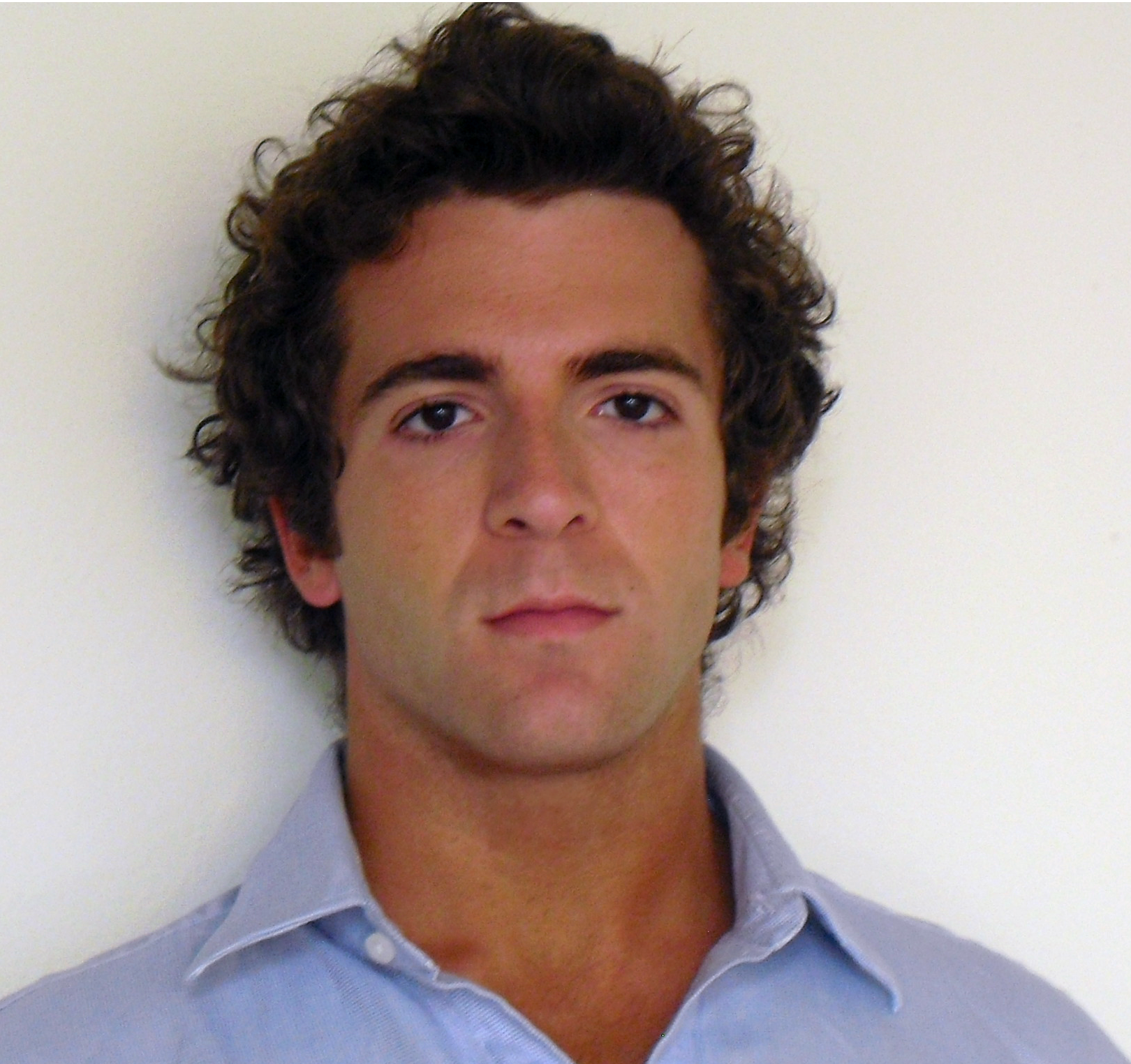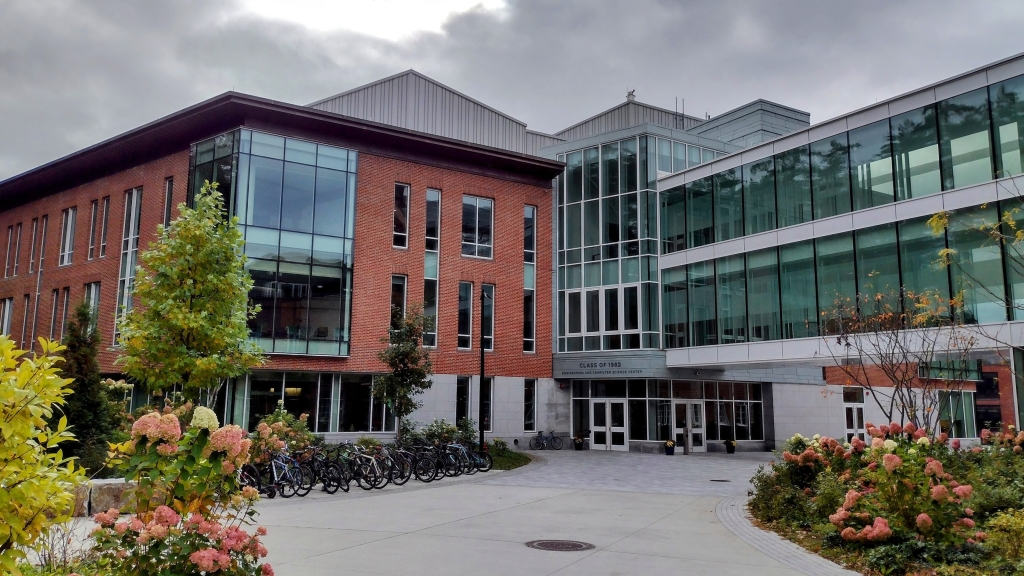Dartmouth Computer Science is delighted to add five new faculty to its roster this academic year. Three of them—Adam Breuer, Christophe Hauser, and Yu-Wing Tai—begin their positions in 2023. Kyungtae Kim and Tam Vu will join the faculty in 2024.
Our new faculty members shared more about their work and interests:
Adam Breuer

Breuer's research is driven by the following questions: How can we leverage algorithms, AI, and the data revolution to learn about fundamental political and societal problems? How are these new technologies changing democratic politics? And how can we design better, fairer, and more secure algorithms with these problems in mind?
Breuer, who joined our department as an assistant professor in summer '23, created and taught Dartmouth's new Politics & AI course last term, and he will teach a new computer science course on machine learning in an upcoming term.
Christophe Hauser
[[{"fid":"389031","view_mode":"dart_wysiwyg_width","fields":{"alt":"Christophe Hauser","class":"media-element file-dart-wysiwyg-width media-wysiwyg-align-left","data-delta":"3","format":"dart_wysiwyg_width","alignment":"right","field_file_image_alt_text[und][0][value]":"Christophe Hauser","field_file_caption[und][0][value]":"","external_url":""},"type":"media","field_deltas":{"3":{"alt":"Christophe Hauser","class":"media-element file-dart-wysiwyg-width media-wysiwyg-align-left","data-delta":"3","format":"dart_wysiwyg_width","alignment":"right","field_file_image_alt_text[und][0][value]":"Christophe Hauser","field_file_caption[und][0][value]":"","external_url":""}},"attributes":{"alt":"Christophe Hauser","class":"media-element file-dart-wysiwyg-width media-wysiwyg-align-right","data-delta":"3"}}]]Christophe Hauser specializes in software security and builds models to reason about new cyber attacks and defenses across the software stack and hardware boundaries. His work is at the intersection of program analysis, formal methods and machine learning and focuses on reverse engineering and vulnerability discovery, with a focus on binary code and firmware. His research interests also include intrusion detection, usable security and privacy-preserving systems.
Hauser, who enjoys outdoors activities including hiking, mountain biking and skiing, joined the faculty in fall '23 as an assistant professor.
He will teach the Security and Privacy course in winter '24 and a Topics course the following term.
Kyungtae Kim
[[{"fid":"389086","view_mode":"dart_wysiwyg_width","fields":{"format":"dart_wysiwyg_width","alignment":"left","field_file_image_alt_text[und][0][value]":"Kyungtae Kim","field_file_caption[und][0][value]":"","external_url":""},"type":"media","field_deltas":{"5":{"format":"dart_wysiwyg_width","alignment":"left","field_file_image_alt_text[und][0][value]":"Kyungtae Kim","field_file_caption[und][0][value]":"","external_url":""}},"attributes":{"alt":"Kyungtae Kim","class":"media-element file-dart-wysiwyg-width media-wysiwyg-align-left","data-delta":"5"}}]]
Kyungtae Kim is currently a postdoctoral researcher in the PurSec lab at Purdue University. His research interests are in the area of systems and software security, with a focus on identifying software vulnerabilities, mitigating their exploitation, and defending against malicious code in various computer systems and applications.
He received his Ph.D. from the Department of Computer Science at Purdue University, where he worked with Dr. Dave Tian. During his Ph.D., Kyungtae has published eleven peer-reviewed papers including seven papers at top security venues including IEEE S&P, USENIX Security, and NDSS.
Yu-Wing Tai
[[{"fid":"389036","view_mode":"dart_wysiwyg_width","fields":{"alt":"Yu-Wing Tai","class":"media-element file-dart-wysiwyg-width media-wysiwyg-align-left","data-delta":"4","format":"dart_wysiwyg_width","alignment":"right","field_file_image_alt_text[und][0][value]":"Yu-Wing Tai","field_file_caption[und][0][value]":"","external_url":""},"type":"media","field_deltas":{"4":{"alt":"Yu-Wing Tai","class":"media-element file-dart-wysiwyg-width media-wysiwyg-align-left","data-delta":"4","format":"dart_wysiwyg_width","alignment":"right","field_file_image_alt_text[und][0][value]":"Yu-Wing Tai","field_file_caption[und][0][value]":"","external_url":""}},"attributes":{"alt":"Yu-Wing Tai","class":"media-element file-dart-wysiwyg-width media-wysiwyg-align-right","data-delta":"4"}}]]Yu-Wing Tai's research interests are in the broad areas of computer vision and machine learning, including low-level vision, segmentation, 3D reconstruction, human pose and video analysis. He is also recently interested in AI Generated Contents (AIGC), multimodalities, large generative pre-trained models and their applications.
Prior to his appointment as an associate professor of computer science at Dartmouth, Tai was a senior research director of Kuaishou Technology, China, and an adjunct professor of computer science and engineering at Hong Kong University of Science and Technology (HKUST). He is a senior member of the IEEE.
Tai will teach the Computer Graphics course in the winter '24.
Tam Vu
[[{"fid":"389091","view_mode":"dart_wysiwyg_width","fields":{"format":"dart_wysiwyg_width","alignment":"left","field_file_image_alt_text[und][0][value]":"Tam Vu","field_file_caption[und][0][value]":"","external_url":""},"type":"media","field_deltas":{"6":{"format":"dart_wysiwyg_width","alignment":"left","field_file_image_alt_text[und][0][value]":"Tam Vu","field_file_caption[und][0][value]":"","external_url":""}},"attributes":{"alt":"Tam Vu","class":"media-element file-dart-wysiwyg-width media-wysiwyg-align-left","data-delta":"6"}}]]
Tam Vu founded and directs the Mobile and Networked Systems lab focused on building wireless, mobile, and embedded systems to capture physical and human information, securing critical Cyber-Physical Systems, and providing seamless network connectivity for CPS at the presence of mobility.
The lab designs and implements novel and practical hardware and software systems to make physiological sensing (e.g. brain signals, eye signals, breathing volume measurement, brainwave signal monitoring, muscle movement recording, and sleep quality monitoring) less intrusive at lower cost and evaluates their systems on patients in in-hospital environments.
Vu is also the Founder and CEO of Earable, a neuroscience deep tech company developing wearables that detects real-time neuro signals to stimulate the brain to improve sleep, focus, and other cognitive functions. The company, which has served more than 2 thousand users from 28 countries, received several awards for its products in the consumer electronic field.
Vu is the recipient of the 2020 Alfred F. Sloan Fellowship, the NSF CAREER award, and the Google Faculty Research Award.
